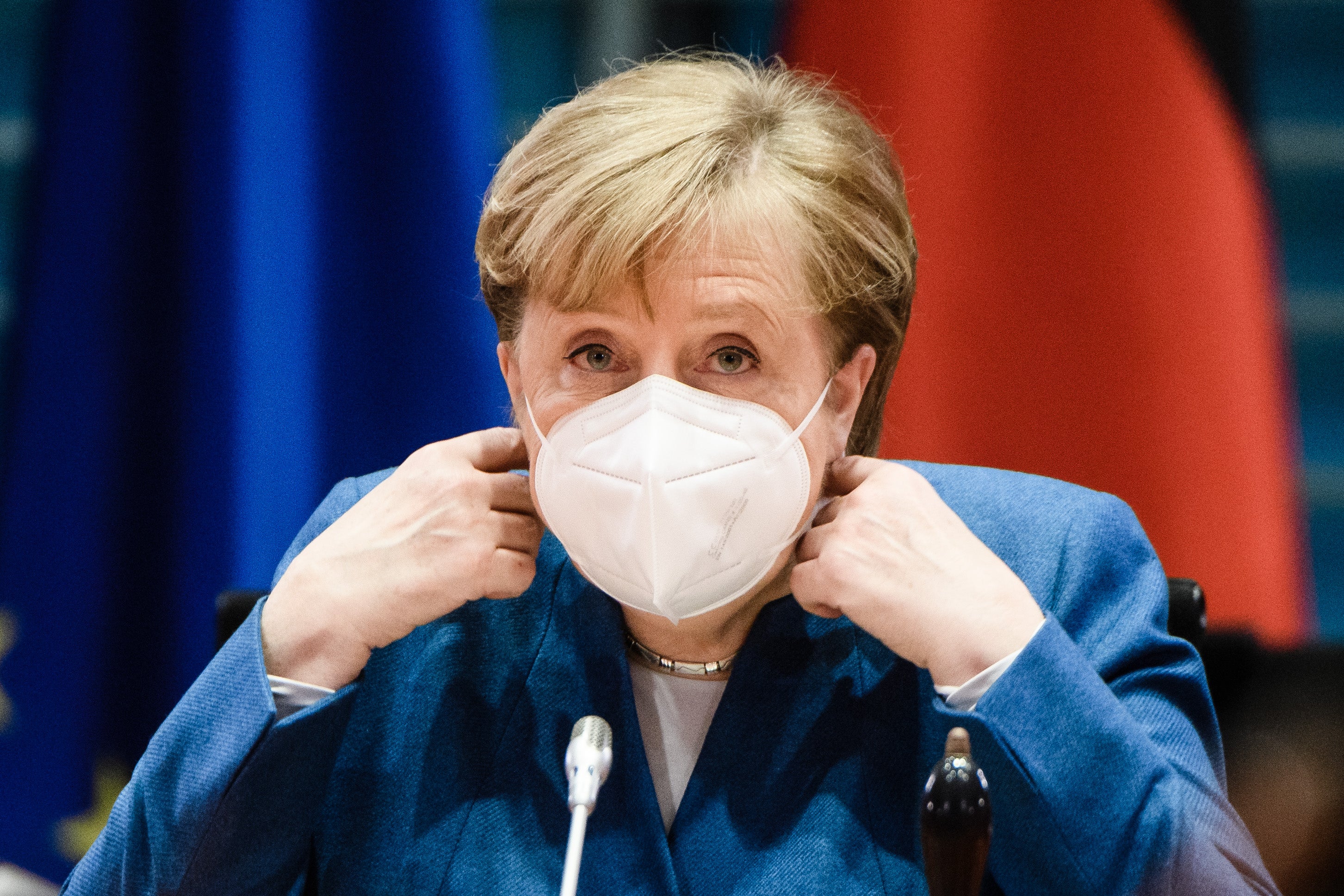Angela Merkel embroiled in coalition clash as Germany lags behind on vaccine roll out
Critics say nation slow to offer jabs after allowing European Commission to lead procurement for entire bloc

Your support helps us to tell the story
From reproductive rights to climate change to Big Tech, The Independent is on the ground when the story is developing. Whether it's investigating the financials of Elon Musk's pro-Trump PAC or producing our latest documentary, 'The A Word', which shines a light on the American women fighting for reproductive rights, we know how important it is to parse out the facts from the messaging.
At such a critical moment in US history, we need reporters on the ground. Your donation allows us to keep sending journalists to speak to both sides of the story.
The Independent is trusted by Americans across the entire political spectrum. And unlike many other quality news outlets, we choose not to lock Americans out of our reporting and analysis with paywalls. We believe quality journalism should be available to everyone, paid for by those who can afford it.
Your support makes all the difference.Clashes have erupted between Angela Merkel and her coalition partners over Germany’s coronavirus vaccination roll-out.
The economic powerhouse has fallen behind other nations like Israel and the UK with its inoculation drive, leaving a cabinet row to brew between Ms Merkel’s Christian Democrats party (CDU) and members of the Social Democrats (SPD).
A key player in the conflict is Jens Spahn, a CDU health minister and potential candidate for chancellor in the 2021 general election.
Mr Spahn has been challenged by SPD vice-chancellor, Olaf Scholz, about the fact that Germany, the country where the BioNtech vaccine was developed, has failed to gather adequate supplies.
Mr Scholz and his fellow critics say the nation is lagging behind because it allowed the European Commission to lead vaccination procurement for the whole EU, and that the commissions purchased too little of the BioNTech vaccine.
The argument was amplified by Germany’s popular newspaper, Bild, which reported that it was the chancellor who blocked plans by the health minister to secure plentiful vaccines in the summer, insisting he should hand the job over to the commission.
On Wednesday Mr Sphan responded, announcing that Germany’s 83 million residents will receive more than 130 million Covid-19 vaccine doses, enough for everybody who needs to receive the shots.
Only the Pfizer-BioNTech vaccine has been approved for use so far, but the European Medicines Agency recommended on Wednesday the approval of the Moderna vaccine.
Mr Sphan has said that he expects first deliveries of this US-developed vaccine by next week, amid growing fears about the more infectious variant of coronavirus.
The infighting between parties, already taking place at the height of a pandemic, is made all the more tension-filled by the upcoming election.
CDU Secretary-General Paul Ziemiak accused the SPD in a tweet of pursuing “cheap” and “dishonourable” election campaigning.
Meanwhile, Ms Merkel has robustly defended the EU’s vaccination efforts and Mr Sphan’s central role.
“I supported the health minister in every phase of this. And I think the process was quite right,” she told a news conference.
“Jens Spahn is doing an excellent job the entire time in the most diverse areas ... And I can only be happy that the health minister is so active.”
Ms Merkel plans to stand down at the end of her current term, and until now, she has been widely praised for her leadership throughout the pandemic.
She recently announced an extended lockdown and tightening restrictions, which are in place until the end of January. Schools are to remain shut and individuals are only permitted to meet with one person outside their household at a time.



Join our commenting forum
Join thought-provoking conversations, follow other Independent readers and see their replies
0Comments